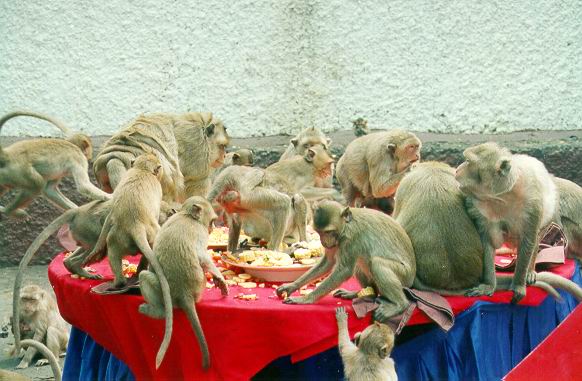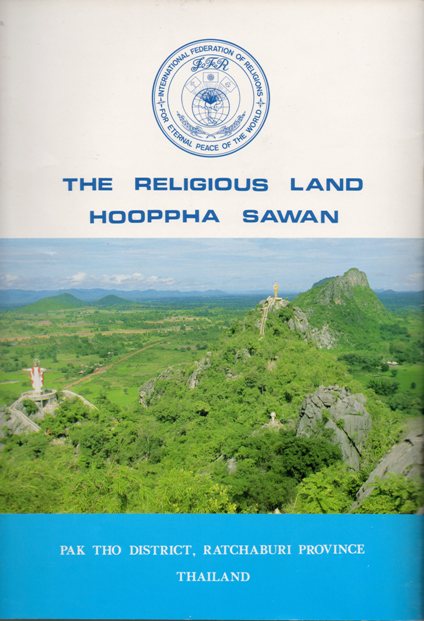Whether the militants have a shared ideology with Jemaah Islamiyah (JI) or al-Qaeda is hard to tell at this point. To date the role of JI or foreigners in southern Thailand has been minimal, and the insurgents have not expanded their activities beyond the Muslim south, with the exception of two attacks in Songkhlas Hat Yai city. They have not bombed soft targets in Bangkok or Phuket, for example. While executing over 400 indiscriminant bombings that have killed some one hundred people and wounded hundreds more, they have thus far stayed focused on the near, rather than the far, enemy. Yet attacks have been decidedly sectarian and brutal.
Domestic Rebellion or International Front?
The Thai government has gone to great lengths to state that this is a domestic insurgency with no foreign roots. As a Thai Foreign Ministry spokesman said, The causes of the situation (are) domestic. Its not part of any international terrorist network, but of course we are concerned about the introduction of extremist ideologies among the youths. We are concerned about the possibility of extremist groups in the region connecting together, and this could become a serious problem.
Though evidence pointing to JI links is limited, there are still several reasons to be suspicious. First and foremost, JI approached both the GMIP and Jemaah Salafi in 1999- 2000 and invited them to a series of three meetings known as the Rabitatul Mujahidinthough it is unknown how deep or strong a relationship was forged. Thai intelligence officials have estimated that 120 to 150 Thais passed through Afghanistan over the two decades beginning in 1982, increasingly in 1988-89 when the mujahidin structure there became better organized. [15]
The arrests of prominent Islamists in Thailand also suggest that Thai insurgents may have ties to some international terrorist groups. Hambali, JIs operational chief and a senior member of al-Qaeda, was captured in Thailand, along with his two lieutenants, Zubair Mohamad and Bashir bin Lap (Lillie), who were charged with perpetrating a major terrorist attack in Bangkok. Lillie was arrested along with a local Thai mujahid, Awang Ibrahim. A Singaporean JI member, Arifin bin Ali, was captured in Thailand, where he was allegedly plotting to hijack an Aeroflot jetliner to crash it into Singapore. Several southern Thai militants were arrested in conjunction with a JI cell in Cambodia that was implicated in laundering money for al-Qaeda through the Om Al Qura Foundation.
The fact that one of JIs leaders and a key planner of the October 2002 Bali bombing, Ali Ghufron (Mukhlas), was given refuge by Thailands leading Wahhabi cleric, Ismail Lutfi, also testifies to the existence of, at the very least, social links. Other JI members have sought refuge in southern Thailand as well. Thai security officials are aware of such links, but they have been unable to detect anything more than passive support for JI. In the April 2004 siege at the Krue Se mosque in Pattani, two Indonesians were killed and a thirdan employee of the Medical Emergency Relief Charity (MERC), an organization related to JI, that supports JI-linked paramilitaries in the Malukus and Poso, Indonesiawas arrested and deported. Recent reports about the Indonesian leader Mudehs influence in Thailand are sketchy, but it is clear that more Thai militants have been training in Indonesia than was previously thought. Thai authorities now regularly speak of an Indonesian network of the BRN-C known as the Runda Kumpulan Kecil.
JI nonetheless remains, as it always has been, focused first and foremost on Indonesia. It is currently regrouping and has little reason to increase activity in Thailand. Like al-Qaeda JI is less a monolithic organization than an organizational network based on a shared ideology, and it has limited means for strengthening the Thai insurgency other than offering a bit more training and support. From its point of view, moreover, everything in southern Thailand is going along swimmingly. The militants there share similar goals and values, and the technological proficiency of their bomb-makers make JI somewhat superfluous. In short, JI does not have to be involved.
Conclusion
It can be said with certainty that the insurgency in southern Thailand has never been as Islamist as it is today. Salafi principles and values, such as takfiri, are being injected into the conflict, making it more of a cultural war than a traditional insurgency. Though the groups involved have said almost nothing about their goals and ideology, their actions have been absolutist. Their current objective appears to be three-fold: to weed out moderates who support the government and oppose the Islamist agenda of the militants; to make the region ungovernable so that they can establish parallel political institutions (known as hijrah); and to alienate the local population from the government by provoking Thai security forces to make heavy-handed crackdownsas they did at Krue Se in April 2004 and Tak Bai October 2004or to establish hit squads. [16] Yet, as no group as stated its goals or platforms, there is very little in the way of an ideological paper trail.
There is palpable concern among many observers that, as bleed-out occurs in Iraq, the situation in southern Thailand will attract foreign jihadis who will want to escalate the conflict. Right now, the only silver lining of the war in Iraq may be that it is attracting most of the itinerant jihadis and most of the attention of the worlds angry Muslims. Thus far, Thailand has remained low on their list of grievances toward the West and apostate regimes, well behind Iraq, Palestine, Pakistan, Afghanistan, North Africa, Kashmir, Chechnya, Mindanao and Indonesia. But there are already some signs that this is changing. The veteran Middle East journalist Amir Taheri wrote in a March article in the pan-Arab Asharq Al-Awsat newspaper that international jihadist circles on the internet and across the Muslim world were discussing the possibility of waging a broader jihad in southern Thailand. The buzz in Islamist circles is that well-funded Jihadist organizations may be preparing a takeover bid for the southern Thailand insurgency. [17]
This article first appeared in Volume 4 of Current Trends in Islamist Ideology published November 1, 2006.
Keywords: Thailand, Muslims, Islam, Jihad, Salafi, Wahabi, Jemaah Islamiyah (JI), Malaysia







